Climate Smart Agriculture: Are we getting there?
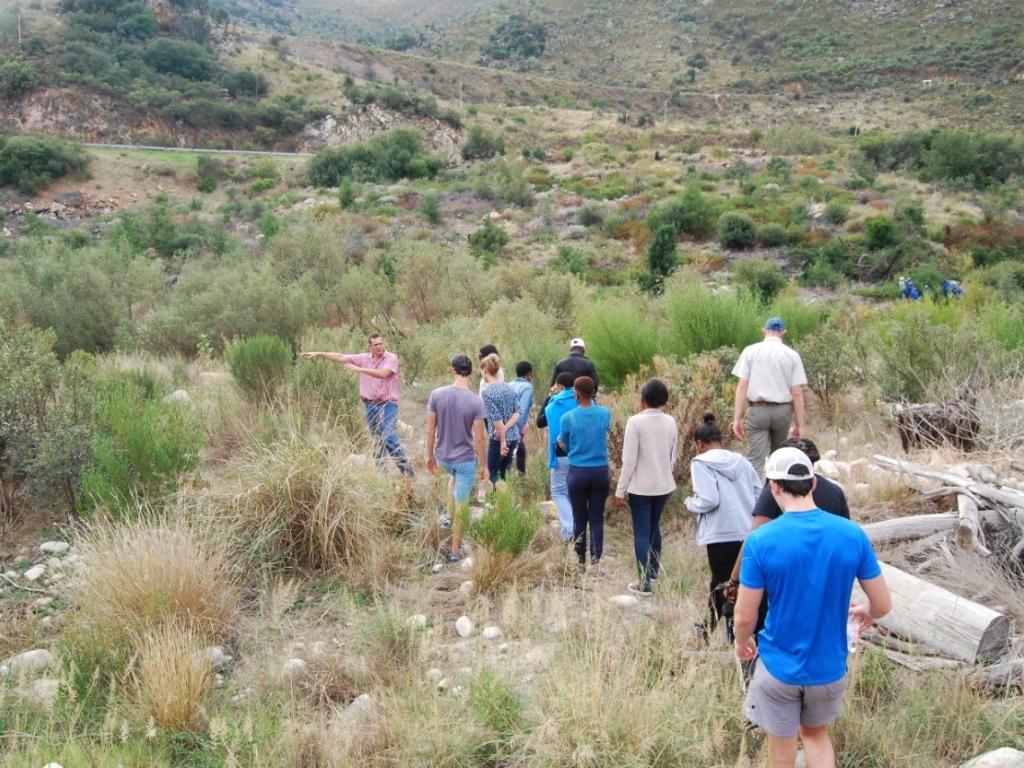
By Theresa Kinkese, ACDI masters student, class of 2016
As postgraduate students, we tend to be busy with academic work which sometimes might lead to less interaction with non-academic communities that practice the concepts we learn during lectures. The African Climate and Development Initiative (ACDI) aims to bridge the gap. In doing so, the ACDI organised a field trip on the 12th of April, 2016 to Stellenbosch and Woseley. The purpose of the field trip was to show the ACDI students climate smart agriculture (CSA) techniques at two different levels in a changing climate.
What is CSA?
Climate Smart Agriculture describes agricultural techniques that adress the challenges of climate change and food security. It provides opportunities for sustainable development and economic growth in agriculture, guided by 3 pillars:
- Adaptation and building farmer resilience
- Reduce carbon emissions
- Increasing sustainable production and food security.
You can watch an introductory video on CSA here and read more in the source book.
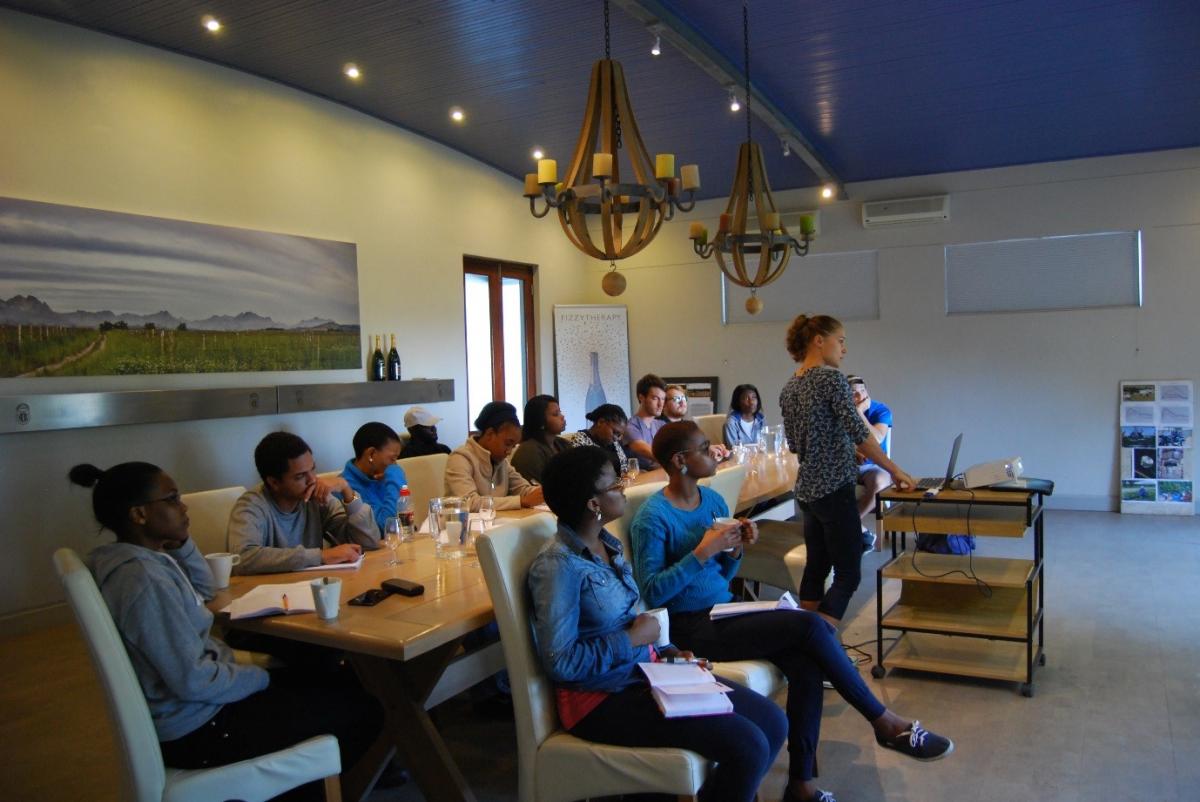
Dr. Nadine presenting to ACDI students on Smart-agri Project.
Insights into climate smart agriculture in Stellenbosch
Our field trip begun with a talk by Dr. Nadine Methner, who presented the CSA project called Smart Agriculture for Resilient (Smart-agri) project. Dr. Nadine is researcher at the ACDI and actively contributed to the Smart-agri project which commenced in August 2014 and ended in March 2016. The project results identify a Western Cape Climate Change Response (WCCC) framework with the vision to “Lead in the way to a climate change resilient future for the Western Cape”. You can learn more about the Smart-agri project here.
On-farm Climate Smart Agricultural Techniques: Villiera Wine Farm
After Dr. Nadine’s presentation, we went on a guided tour of Villiera farms in Stellenbosch. Mr. Simon Grier, the owner of the farm, gave us the tour to show us farm-level CSA techniques. This is what I observed: The vine yards were mulched, properly pruned and insect controlled by Peking ducks. Of particular interest to me was the water harvesting drainage systems built in the vineyards to collect rain water which feeds into the dam and is re-used for irrigation. I have found water harvesting drainage systems not to be properly built in most cases but, Mr. Griers’ water harvesting innovative technique is one that shows me we are capable of adapting to climate change risks in agriculture.
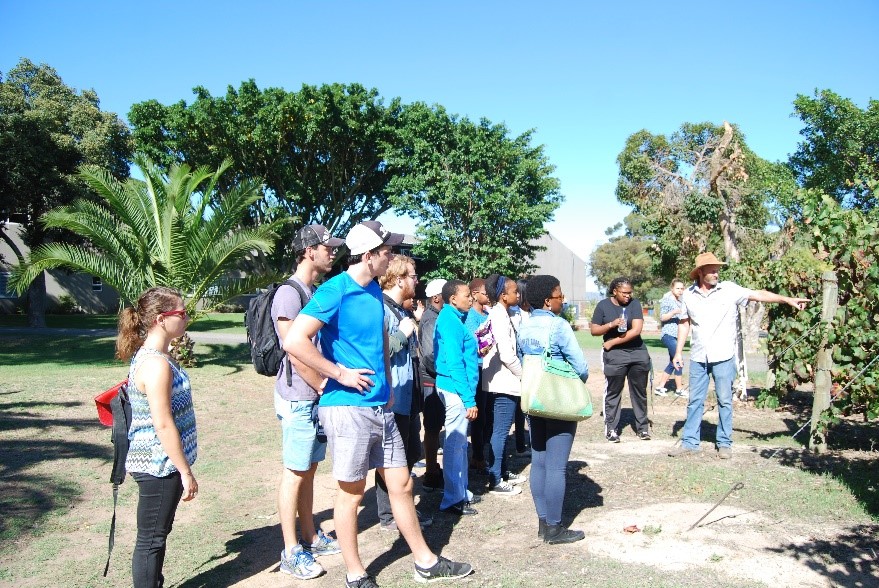
Mr. Simon Grier giving a tour to ACDI students on the farm.
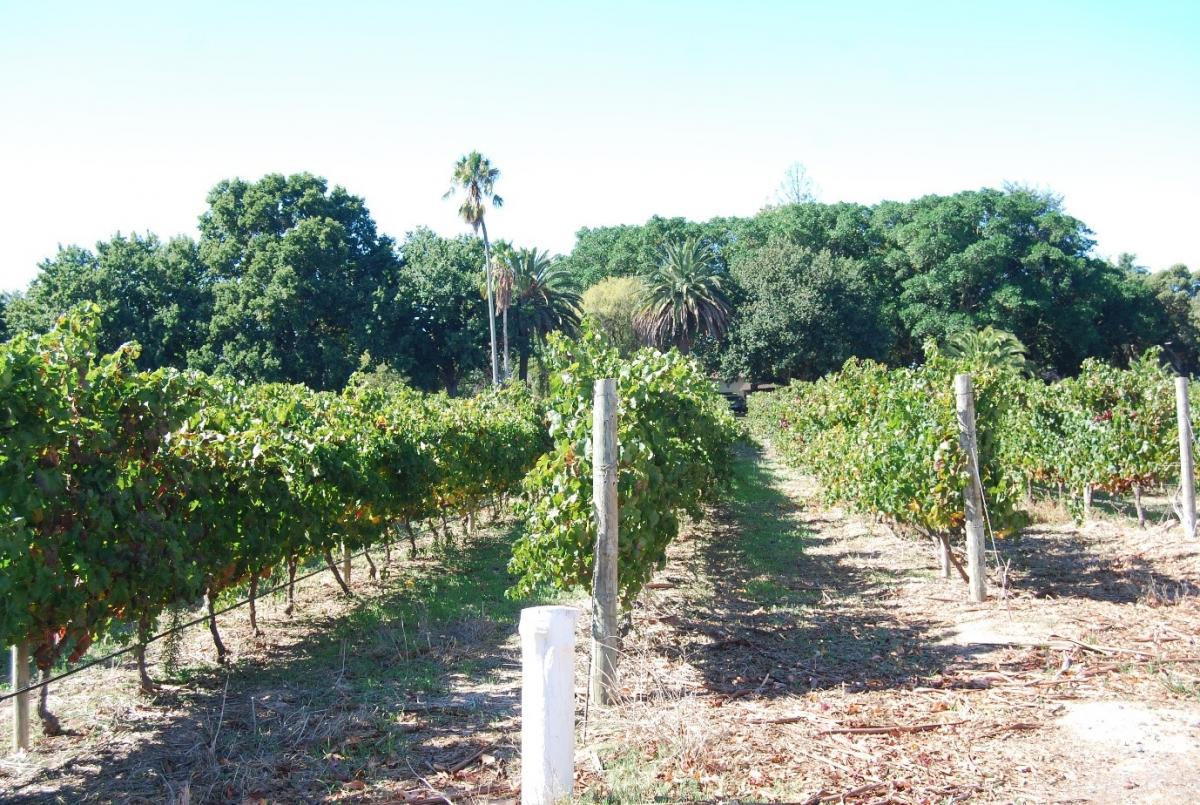
Villiera Vineyard.
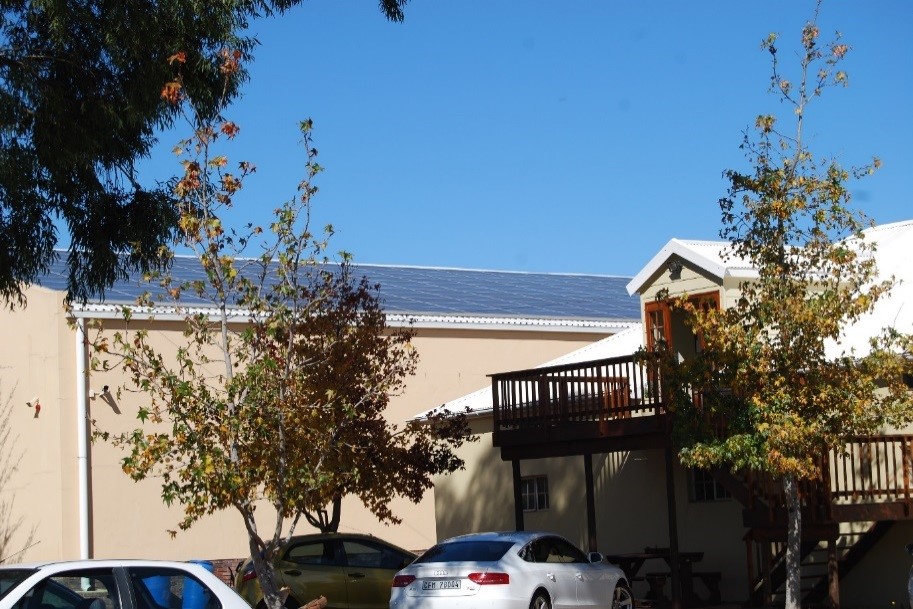
Solar panels on a roof top.
Other interesting techniques were the increased use of solar energy rather than on-grid energy propelled from fossil fuels, recycling of all packaging materials and advocating on-farm tree planting to reduce carbon emissions.
Last but not the least, social wellbeing is at the heart of Villiera farm. Mr. Grier believes that healthy employees, enhances agricultural productivity. Owethu clinic and a school for children are located on the farm for the employees to have access to. You can watch a video on Villiera farms here
Wine tasting
Aptly, an opportunity arose to taste the well-blended wines of Villiera farm so that we could appreciate their tastes.

ACDI students wine tasting.
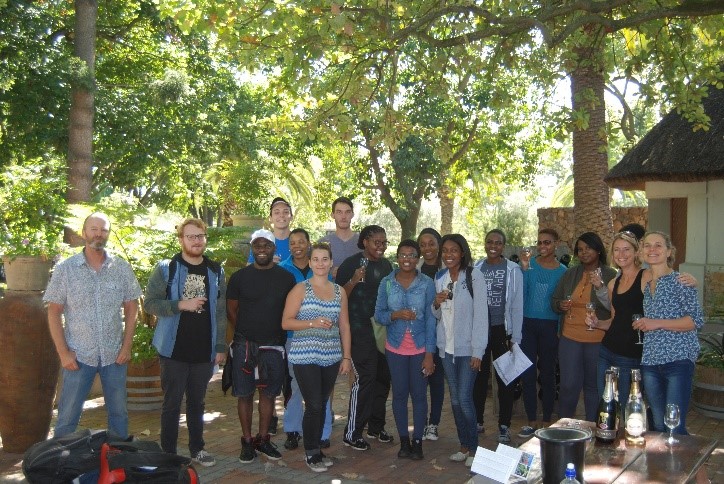
Group photo, Simon Grier on far left and the ACDI team
Climate Smart Agricultural Techniques by Department of Agriculture (DoA) in Wolseley
The land care initiative project brings us to the next level of CSA techniques. The project briefing was led by Rudolph Roscher (DoA), Garth Motimer (Cape Nature representative) and Louis (Woseley farmer Association chairman) who work together on the project. The project aims to remove invasive species from the river that disturb its natural flow and reduce available water for agricultural irrigation.
The project implementation method intrigued me in that the farmers identified social well-being problems which the project addressed beforehand. It encourages communication, improves farmers’ budgeting skills and builds on local farmer initiatives to clear the invasive species, which in turn, creates job opportunities for surrounding communities.
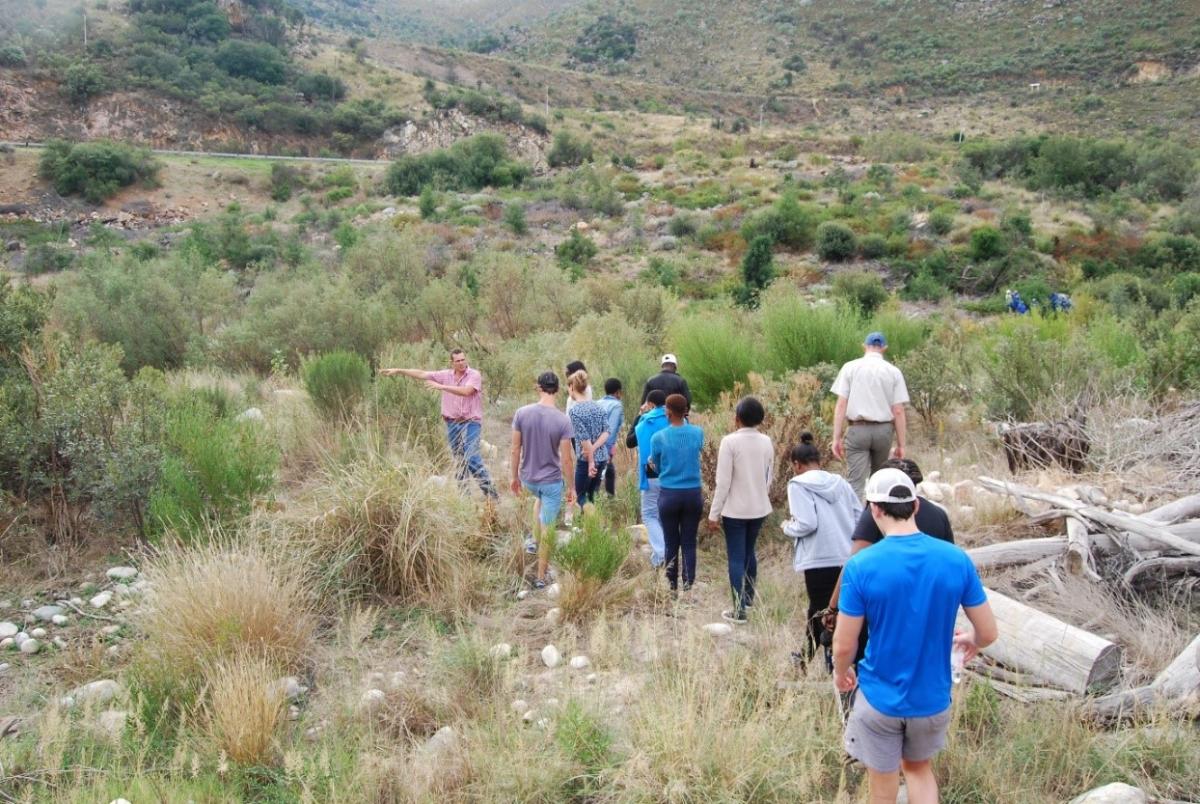
Rudolph Roscher (DoA) pointing to an invasive species along the river for ACDI students to view.
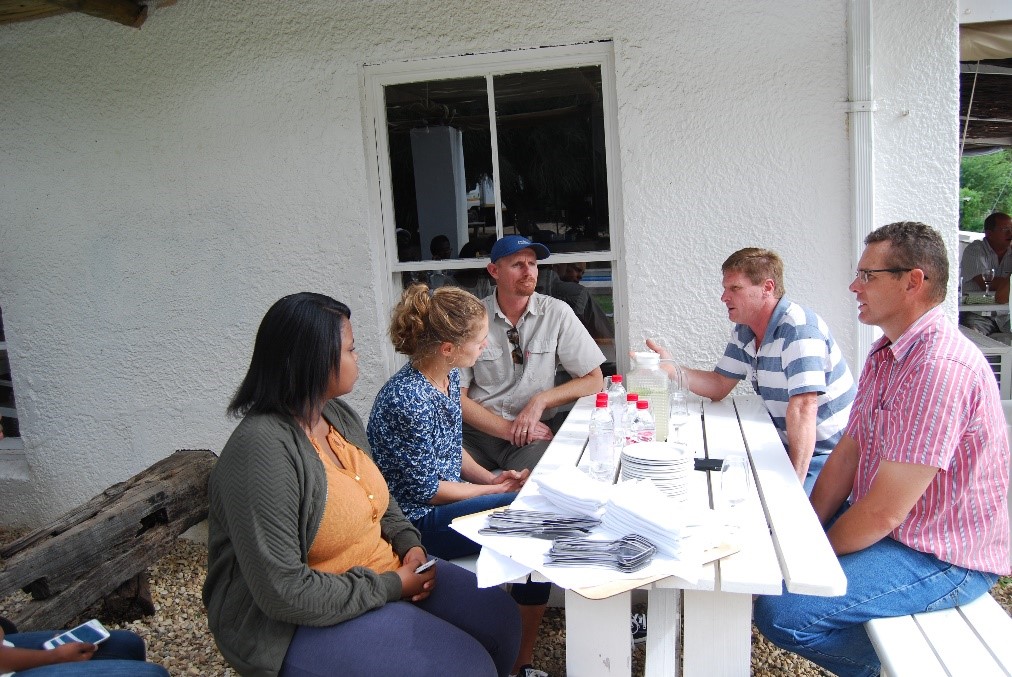
A farmer explaining how invasive species have affected river flows in a changing climate
Next step: Should we advocate for Climate Smart Agriculture?
If I were asked to advocate for CSA today, it would be a definite ‘YES’ from me. I think CSA is a positive step forward to solving the complex nexus of agriculture to food security and climate change in South Africa and other developing nations. Climate Smart Agriculture supports local farmers with specific adaptive innovations to build resilience to climate change, keeping in mind that increasing agricultural productivity and production must sustain households’ incomes and the environment for present and future generations.
All photos by Marie-ange Baudoin
Disclaimer: The views expressed here are solely those of the author in her private capacity.